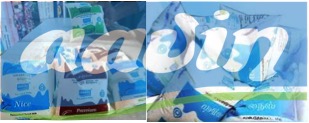Aavin is crying over spilt milk, literally. Its milk sachets are leaking, and customers are not amused. “This summer, at least twice a week, we received milk packets that leaked. On an average, we lose nearly 25 ml to 30 ml of milk from a 500 ml sachet. It has become so common that delivery agents have now asked us to place utensils outside our homes instead of plastic or cloth bags,” said T Sadagopan from Tamil Nadu Progressive Consumer Centre.
The problem appears to be the thickness of the plastic. In 2019, the state-owned milk cooperative had increased the thickness of the half-litre sachets from 53 microns to 63 microns to avoid leaks. But as a cost-cutting measure, Aavin once again reduced the thickness to 55 microns.SA Ponnusamy, founder-president, TN Milk Dealers Employees Welfare Association, said there was large-scale corruption in procurement of the sachets and demanded action against those responsible. Admitting the flaw, the Tamil Nadu Co-operative Milk Producers’ Federation Limited (TNCMPF), which runs Aavin, has sent the suppliers packing and plans to call for fresh tenders for sachets 60 microns thick. “I would recommend at least 73 microns, which is the industry standard adopted by most private dairy companies,” said C Kamaraj, former managing director of Aavin, who increased the thickness in 2019. The present MD of Aavin N Subbaiyan, however, said 55 microns is what the Bureau of Indian Standards (BIS) recommends. And thickness alone can’t be the reason for leaks.
Handling and transport too matter, he said. Decreasing the film thickness increases the risk of pinhole formation and breakages in sealing areas. But leaks aren’t Aavin’s only problems, says an internal audit. Though demand for Aavin milk soared across the state during the pre-pandemic phase, particularly in Chennai, actual sales dropped even when there was no change in the procurement levels from dairy farmers.
The audit, accessed by TOI, attributed it to an unproductive policy reform in 2019. For more than 20 years, TNCMPF has marketed milk sachets through wholesale dealers (WSDS) to retail shops in Chennai. To improve distribution, K T Rajendra Balaj i as dairy minister in August 2019 decided to replace WSDS with clearing and forwarding (C&F) agents.
However, the audit said, there was no transparency in the selection of C&F agents. No tenders specifying eligibility conditions were floated and open competition was restricted. Aavin ended up spending ₹12 crore more a year compared to the previous WSDS method because of the higher commission given to the C&F agents. But sales did not grow in Chennai. Average daily supply dropped to 4. 7 lakh litres during the first six months of the reform (September 2019-March 2020). It used to be more than 5 lakh litres a day.
TNCMPF says it has scrapped the C&F system and that sales are rising once again.
Source : The Times of India 4th June 2022

